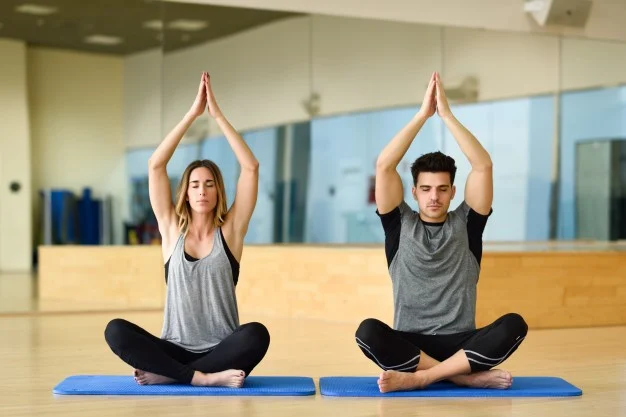In today’s fast-paced world, stress has become a common part of daily life for many people. Whether it’s work-related pressure, family responsibilities, or financial worries, stress can take a toll on both our physical and mental well-being.
However, one of the most effective ways to combat stress is by engaging in regular exercise and physical activity.
Not only does exercise help to keep our bodies healthy and strong, but it also has powerful stress-relieving effects, helping us to relax, unwind, and feel more balanced and centered.
How Exercise Relieves Stress
Exercise and physical activity have been shown to have a range of positive effects on our mental and emotional health, including:
- Reduced stress hormones: Exercise triggers the release of endorphins, the body’s natural stress-fighting chemicals. These endorphins help to reduce levels of cortisol, the body’s primary stress hormone, leading to lower levels of stress and anxiety.
- Improved mood: Exercise has been shown to boost mood and reduce symptoms of depression and anxiety. Whether it’s going for a run, taking a yoga class, or lifting weights at the gym, physical activity stimulates the production of neurotransmitters such as serotonin and dopamine, which can help to lift our spirits and improve our overall mood.
- Increased relaxation: Exercise can help to relax the body and quiet the mind, promoting a greater sense of calm and relaxation. Activities such as yoga, tai chi, and qigong are particularly effective for promoting relaxation and reducing stress.
- Better sleep: Regular exercise can help to improve sleep quality and duration, which in turn can help to reduce stress and improve overall well-being. Exercise helps to regulate the body’s sleep-wake cycle and can help to promote deeper, more restful sleep.
Tips for Incorporating Exercise into Your Routine
If you’re looking to incorporate more exercise and physical activity into your life, here are a few tips to help you get started:
- Find activities you enjoy: The key to sticking with an exercise routine is to find activities that you enjoy and look forward to doing. Whether it’s going for a walk, riding your bike, swimming, dancing, or playing a sport, choose activities that you find fun and enjoyable.
- Start slowly: If you’re new to exercise or haven’t been active in a while, start slowly and gradually increase the intensity and duration of your workouts. This will help to prevent injury and make it easier to stick with your exercise routine over the long term.
- Make it social: Exercise with friends or family members can be a great way to stay motivated and accountable. Whether it’s going for a walk with a friend, joining a sports team, or taking a group fitness class, exercising with others can make it more enjoyable and help you stay on track.
- Mix it up: Variety is the spice of life, so don’t be afraid to mix up your exercise routine and try new activities. This will help to prevent boredom and keep you motivated to stick with your workouts.
- Make it a priority: Schedule time for exercise in your daily routine and treat it like any other important appointment. Whether it’s first thing in the morning, during your lunch break, or after work, prioritize time for exercise and make it a non-negotiable part of your day.
Conclusion
In today’s fast-paced world, finding healthy ways to cope with stress is more important than ever for our mental and emotional well-being. Exercise and physical activity offer a simple yet powerful way to reduce stress, boost mood, and improve overall well-being.
By incorporating regular exercise into your routine, you can enjoy the many benefits of physical activity and lead a happier, healthier, and more balanced life.

Leave feedback about this